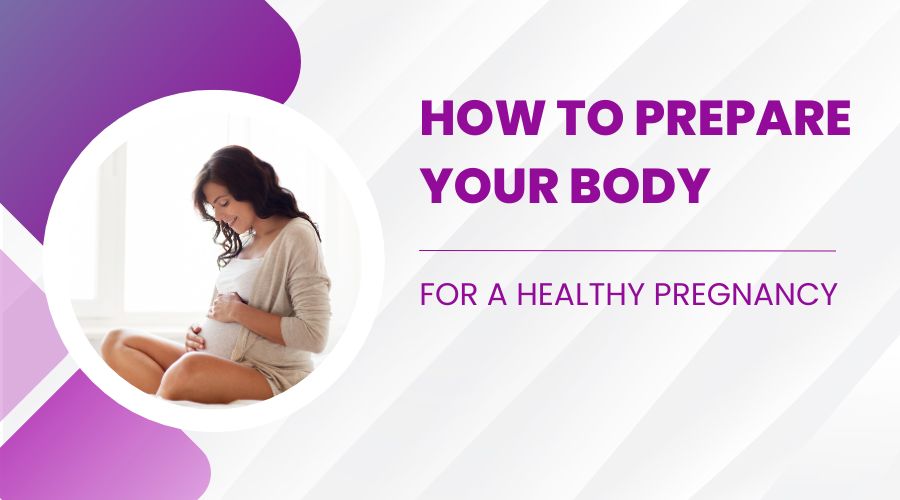
Preparing for pregnancy is one of the most empowering steps you can take for your health and the future health of your baby. A healthy pregnancy begins even before conception, and the choices you make now can greatly influence fertility, reduce pregnancy risks, and set a strong foundation for a smooth journey ahead. At DrPreetiTandon, we emphasize holistic and informed planning to ensure that your path to motherhood is as healthy and joyful as possible.
1. Schedule a Preconception Check-Up
The first step toward a healthy pregnancy is visiting a qualified gynecologist or fertility specialist. During this preconception check-up, your doctor will:
- Review your medical history
- Assess any chronic health conditions (like diabetes or thyroid issues)
- Discuss any medications you’re currently taking
- Recommend essential vaccines, if needed
This visit also provides an opportunity to talk about genetic screening, family health history, and lifestyle habits that may affect fertility.
2. Start Prenatal Vitamins Early
Even before you conceive, your body needs vital nutrients to support a healthy pregnancy. Folic acid is one of the most important supplements, as it helps prevent neural tube defects in the developing fetus. Experts recommend starting a prenatal vitamin with:
- 400–800 mcg of folic acid
- Iron
- Vitamin D
- Calcium
- DHA (for brain development)
Ideally, begin taking these vitamins at least one month before trying to conceive.
3. Maintain a Healthy Weight
Being overweight or underweight can affect your menstrual cycle, ovulation, and chances of conception. More importantly, it may increase the risk of complications like gestational diabetes, high blood pressure, or preterm birth.
Aim for a balanced weight through a nutritious diet and regular physical activity. Consult a healthcare provider to determine your ideal BMI range and work toward that goal with patience and consistency.
4. Eat a Fertility-Boosting Diet
What you eat can significantly impact your reproductive health. Prioritize whole, unprocessed foods rich in nutrients and antioxidants. Your pre-pregnancy diet should include:
- Fresh fruits and leafy vegetables
- Whole grains (like oats, quinoa, and brown rice)
- Lean proteins (such as lentils, beans, fish, and eggs)
- Healthy fats (avocados, nuts, olive oil)
- Dairy or calcium-fortified alternatives
Limit sugary foods, processed snacks, and trans fats. Stay well hydrated and consider speaking with a dietitian for a personalized meal plan.
5. Exercise Regularly — But Safely
Moderate physical activity helps regulate hormones, reduces stress, and prepares your body for the physical demands of pregnancy. Recommended exercises include:
- Walking or brisk walking
- Swimming
- Yoga or Pilates
- Light strength training
Aim for at least 30 minutes of moderate exercise most days of the week. If you’re new to fitness, start slow and gradually increase your activity level.
6. Quit Smoking, Alcohol, and Limit Caffeine
Smoking and alcohol can affect fertility and cause harm to the fetus. It's crucial to quit these habits before conception. Also, limit your caffeine intake to less than 200 mg per day (about one 12-oz cup of coffee).
If you're struggling with quitting smoking or alcohol, speak to a doctor or counselor — support and resources are available to help.
7. Manage Stress Effectively
High stress levels can disrupt hormonal balance and ovulation. Prioritize your mental well-being with stress-reducing activities such as:
- Meditation and deep breathing exercises
- Spending time in nature
- Listening to calming music
- Journaling or talking to a therapist
Good mental health is essential not only for conception but also for a peaceful and balanced pregnancy experience.
8. Get Enough Sleep
Quality sleep is often underrated but vital. Lack of sleep can impact hormone levels and immune function. Aim for 7–9 hours of uninterrupted sleep every night. Maintain a regular sleep schedule and create a relaxing bedtime routine.
9. Understand Your Menstrual Cycle
Tracking your menstrual cycle can help you identify your fertile window — the best time to try conceiving. Apps or ovulation kits can help you pinpoint ovulation, making your planning more effective. If your cycles are irregular, seek guidance from your gynecologist.
10. Involve Your Partner
Pregnancy is a shared journey. Encourage your partner to also adopt a healthy lifestyle, including quitting smoking, reducing alcohol intake, and eating nutrient-rich foods. Male fertility is equally important and is influenced by factors like stress, sleep, and overall health.
Pregnancy is a life-changing milestone, and preparing your body ahead of time can make a huge difference. From nutrition and exercise to mental health and medical care, each step plays a critical role in ensuring a smooth and healthy experience.
At DrPreetiTandon, we’re committed to guiding women through their fertility and pregnancy journey with compassion, personalized care, and medical excellence. If you’re planning to conceive soon or have questions about preconception health, book a consultation with us today.
Your journey to motherhood starts with good preparation—start now for a healthier tomorrow.



